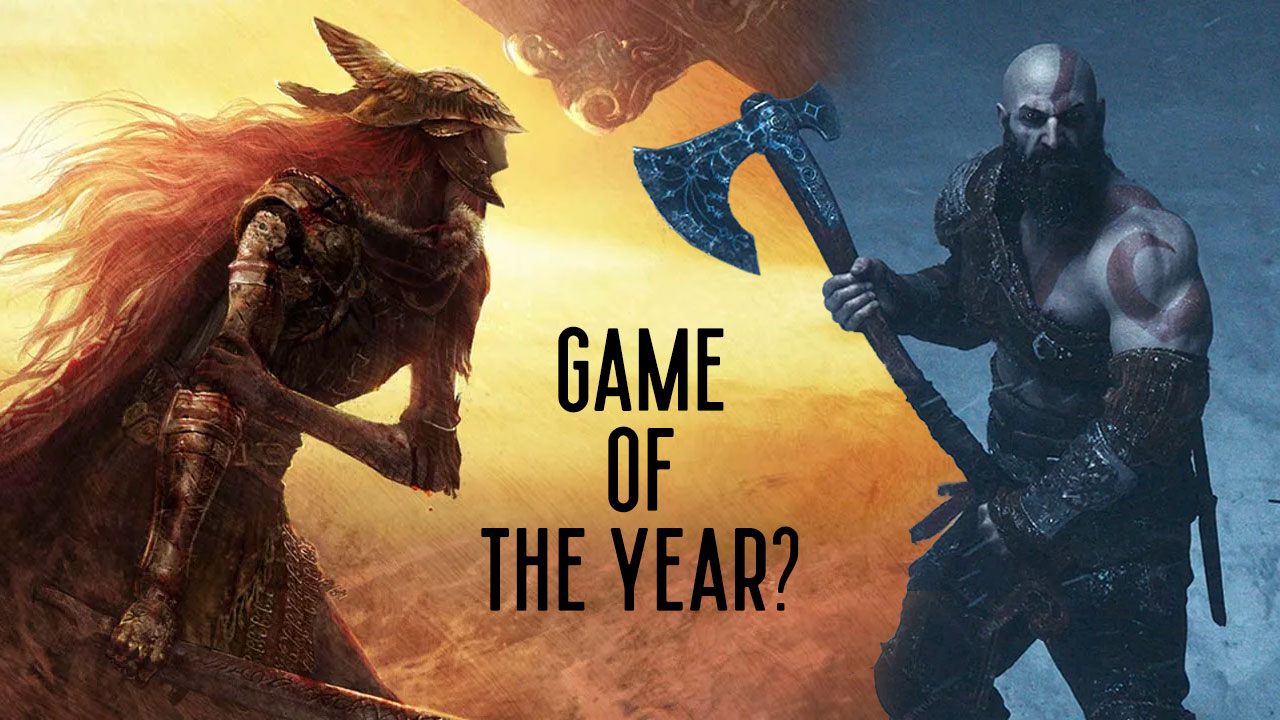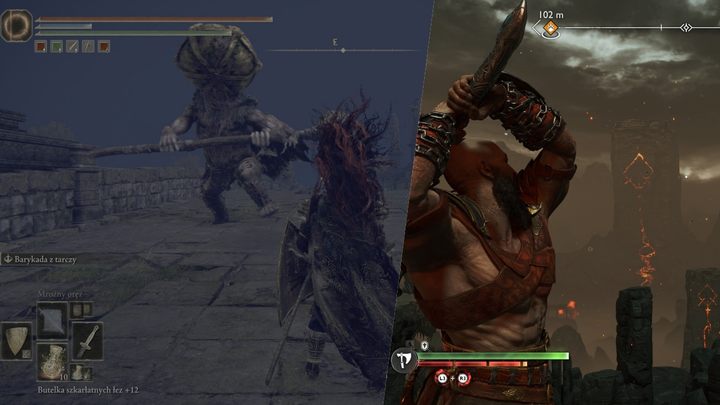Gameplay – the closest tie. How Did Elden Ring Beat God of War Ragnarok to GOTY? Here's My Take

- How Did Elden Ring Beat God of War Ragnarok to GOTY? Here's My Take
- Gameplay – the closest tie
- The openness of Elden Ring impresses more than the semi-openness of God of War
- Technically half-baked vs. audiovisual masterpiece
- Elden Ring goes for vision, Ragnarok goes for quality
Gameplay – the closest tie

GOD OF WAR: RAGNAROK VS. ELDEN RING – GAMEPLAY
- How was God of War: Ragnarok better? It balances the combat system, finding a golden mean between spectacular clashes and tactics, allows you to perform various combos of blows, stimulates the brainz with original environmental puzzles.
- How was Elden Ring better? It provides hundreds of different weapons, skills and viable character builds, further perfects the intricate Souls' combat system, which is one of the most outstanding systems in the history of video games, doesn't bore you with fights, offering a slew of different types of enemies and bosses.
- Winner: Draw; I consider making a definitive decision impossible
Souls are hellishly playable games not only because of their exorbitant level of difficulty. The titles in this series offer, above all, a responsive, iconic combat system developed and mastered by FromSoftware, at the same time establishing an entire sub-genre. Determined primarily by the right timing of movements – attacks, rolls or parries – it gives a sense of incredible satisfaction both when you master it to perfection, or on the contrary – when you defeat an annoying boss in a clumsy, but effective way. Elden Ring therefore uses a proven recipe for success, while improving on the already excellent formula.
The multitude and flexibility of classes (from slow knights wielding six-feet, two-handed maces, to magicians running around in leather coats and keeping their distance), a whole lot of types of weapons with completely different parameters and special abilities, skills that improve the character's mobility, and the complete freedom in developing your attributes – this is where Elden Ring shows its teeth. Everyone can play as they prefer, and they are never forced to choose a specific style, so full comfort in the face of a considerable challenge is a big plus.
It's hard to say that Ragnarok stands out with anything particular about its combat system. In fact, I am one of those people who see a lot of souls-like inspiration in the new formula of God of War, and I don't mean only surprisingly difficult boss fights, but also the entire feeling of these encounters. Kratos is limited to using a strictly defined arsenal, starting his wandering with the Leviathan and Blades of Chaos. Initially, we learn simple combos and combine these weapons, but then, with the development of numerous, but very clear skill trees, as well as gaining new armor and active skills, the range of our moves grows significantly and it's not actually easy to get the hang of it in all that chaos. The multitude of viable tactics, especially towards the end of the game, similarly to Elden Ring, provides a lot of freedom.

However, these games are not just about combat, even though they are strongly oriented towards it. While in FromSoftware's game, most of the time is spent traversing vast battlefields (finally in the series: with the ability to jump, in an open world, and even on a mount!), the new adventure of Kratos, in turn, occupies the player's attention with puzzles, often pretty original. Often in connection with the puzzles, weapons must be used in a slightly more unconventional way. Leviathan turns out to be a multifunctional tool once again, or, in other words, the missing cogwheel of many mechanisms scattered around islands and settlements. There's also bit of room for puzzles in Elden Ring, especially in the dungeons, so once in a while, you'll need to move a lever, though there's not much more to it. In the case of this game, what counts is the discovery itself (more on that in a moment).
So I have the impression that objectivity will not help in deciding which type of gameplay is better or more refined – in this case, we're talking about gameplay systems so rich and polished that it's difficult not to appreciate them both. I don't like draws, but don't worry – the game is not over yet.

